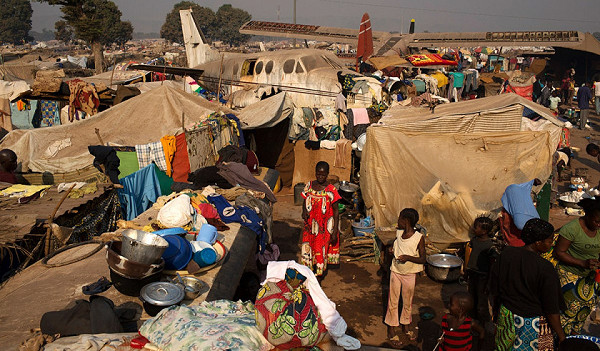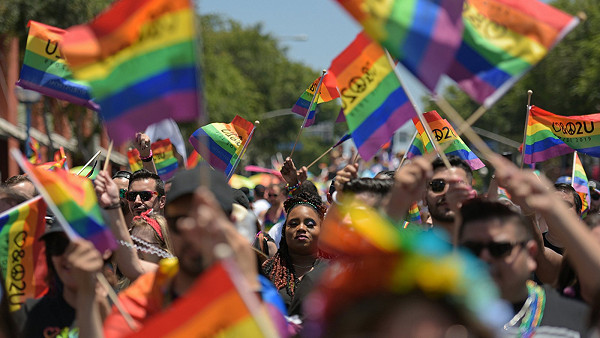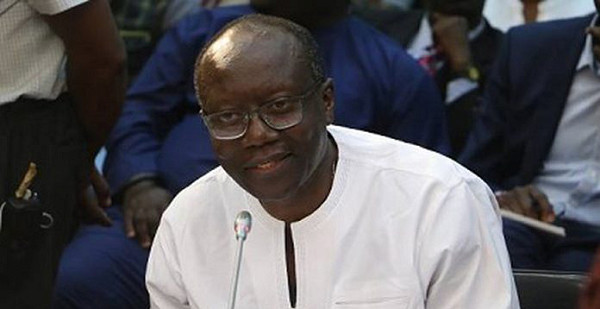Ghana was the first country to attain independence in Africa and is a signatory to several international protocols that ascribe to equality of men and women. Nevertheless, Ghana lags behind many African countries in the fight for gender parity, particularly women's representation in parliament. This paper draws on the experiences of some African countries to recommend the passing of Ghana's affirmative action bill to grow the representation of women in parliament.
In February 1986, Ghana ratified the Convention on Elimination of All Forms of Discrimination against Women (CEDAW). About a decade later, following the fourth United Nations Women's Conference in Beijing, Ghana became a signatory to the Beijing Declaration and Platform for Action (BDFPA). Currently, Ghana is one of the 193 countries which have adopted the Sustainable Development Goals (SDGs) one of which advocates gender equality across all sectors. SDG 5.5 specifically prescribes women's full and effective participation and equal opportunities for leadership at all levels of decision-making in political, economic, and public life. Ghana's ratification of these international protocols is ostensibly reflective of a willingness to promote gender parity in the domestic environment.
Article 35(6) of Ghana's 1992 Constitution notes, "the State shall take appropriate measures to achieve reasonable gender balance in the recruitment and appointment to public offices". Furthermore, article 17 of the constitution states that no citizen shall be discriminated against based on gender, race or religion. This demonstrates a firm commitment to gender equality. However, the stated commitment to gender equality does not translate into increased representation for women.
Ghana's 1960 constitution introduced an affirmative action that mandated ten seats for women at the national assembly. In 1965, the number of women in parliament increased to nineteen. After the end of the first republic and its affirmative action, women's representation decreased drastically. In 1969, only one (1) out of the hundred and forty (140) members of parliament was a woman. This figure increased to six (6) in the third republican parliament of 1979. There is a clear difference between women's representation in the first republic with Nkrumah's affirmative action and the second and third republics with no gender quotas. Until the fourth republic, no parliament matched the percentage of representation witnessed under the first republic.
Since the inception of the fourth republic, women's representation has seen a relative increase with ten (10) women in the 1992 parliament; nineteen(19) in the 1996 parliament; eighteen (18) in the 2000 parliament; twenty-five(25) in the 2004 parliament; twenty (20) in the 2008 parliament; thirty(30) in the 2012 parliament and 36 in the 2016 parliament. While this ostensibly represents an increase in the number of women, it does not take into account the fact that the number of seats in parliament increased from two-hundred(200) to two-hundred and thirty (230) in 2000 and from two-hundred and thirty to two-hundred and seventy-five (275) in 2012. In the face of this, the nominal increase in the number of women in parliament is not impressive.
Ghana's current 275-member parliament has only forty women. Even though this is historically the highest number of women's representatives in a Ghanaian parliament, the vast gap still leaves much to be desired. After 60 years of pioneering independence in Africa, women's representation in Ghana is prosaic. Currently, Ghana is ranked as the 107th out of 153 countries on the global gender gap report and 141st in the world in terms of women's parliamentary representation. The Ghanaian parliament still falls short of the 30% United Nations threshold adopted at the Fourth women's conference. Only 38 (14.2%) out of the 260 nominated Metropolitan, Municipal and District Chief Executives (MMDCEs) were female at the local level.
To close the gender gap that plagues Ghanaian politics and, mainly, representation in parliament, Ghana has drafted an affirmative action bill approved by the cabinet in 2016. However, the bill did not reach the consideration stage before the end of the 6th parliament and has still not been passed into law to date.
Among other things, the affirmative action bill requires at least a 50% representation of women in governance and decision-making and a percentage of employment in all sectors reserved for women. It also calls for the adoption of a voluntary party quota system by Ghanaian political parties and prosecuting people who verbally assault women who stand for public office.
While the bill's passing depends broadly on the executive and the legislative arm of government, activism from other stakeholders has been relatively low. Women parliamentarians, for instance, have not taken up robust activism and advocacy for the bill, thus enabling its abandonment over the years. Broadly, a few women's organizations, such as Abantu for women, have led the charge for the bill. However, the cost burden is too heavy for such relatively small groups. The bill's importance has not been impressed as a wide women's problem, and therefore, apart from these organized women's groups, few women are involved in advocating for the bill.
Moreover, political parties, especially the two major political parties in Ghana, have not actively promoted women's representation and the affirmative action bill. In 2015, the New Patriotic Party, then in opposition, attempted to introduce an ad hoc affirmative action at the party level where only another female NPP candidate could only contest any constituency with a woman as the incumbent MP. This attempt became merely academic due to the lack of a proper discourse on the policy and the fear that male aspirants in the said constituencies would defect as independent candidates and draw votes away from the party.
Currently, the only concession women politicians enjoy is reducing their filing fees. However, this is insufficient as the cost of running for elections for women is beyond more than just the financial. Women pay social and cultural prices that their male counterparts are exempt from, and the affirmative action bill aims to eradicate some of those obstacles.
Ghana's affirmative action bill is not the first of its kind. Several African countries have adopted gender quotas to improve parliament representation. In 2003, the Rwandan constitution implemented a gender quota for elected positions. To add to this, political parties in Rwanda adopted their voluntary quotas for female candidates. Since then, the numbers in Rwanda have increased from a mere 25.7 per cent in 2002 to over 60 per cent in 2020. Rwanda has the most substantial female participation in politics in Africa. Globally, it also has the highest number of women in its lower house.
Apart from Rwanda, South Africa has been used to typify the success of gender quotas. In 1994, the African National Congress (ANC) introduced a voluntary party quota system in response to pressure from women's groups towards gender mainstreaming. In addition to this, the country utilizes a somewhat relaxed legislated quota system which requires political parties at the subnational level to have at least 50% of all candidates be female. Currently, 184 of 397 (46%) seats in the South African National Assembly are held by women.
To add to these, Mozambique has achieved 42% women's representation through its voluntary party quotas; Angola has 30% of its parliament represented by women by the use of legislated quotas, and the Ugandan parliament has 36% women's representation through its legislation which requires each district to have at least a female representative.
The few examples given suggest that countries around the world that have met the 30% threshold stipulated by the UN have usually done that through the use of some affirmative action, whether legislated or not. Ghana's history of affirmative action under Nkrumah also suggests that affirmative action improves women's representation in politics.
Ghana's experience with women in parliament shows a gradual increase in the number of women at the turn of each parliament. Juxtaposing Ghana's experience with the knowledge of other countries in sub-Saharan Africa, as shown above, reveals that gender quotas can cause a significant increase in the number of women in Ghanaian parliament as opposed to the gradual increases witnessed in the past.
The 2021 population and housing census report that 50.7 per cent of the people in Ghana are females. Considering this, it is evident that the domination of men (regardless of how objective) in the Ghanaian parliament may lead to the erasure of female perspectives in parliamentary business. The affirmative action bill, if passed, will address some of the obstacles to women's representation and increase the proportion of women in parliament in the shortest possible time.
Pass the affirmative action bill, but we cannot stop there. It must be the beginning of the journey towards gender balance in parliament. There is the need for further advocacy engagements to ensure the government invests in girl-child education to brighten the future of women representation. There should be socio-cultural sensitization to soften the stigma and resistance to women's leadership. Finally, women leaders must leverage their positions to give impetus to the general feminist quest to achieve political equality and representation.
Women must stand and be counted.






